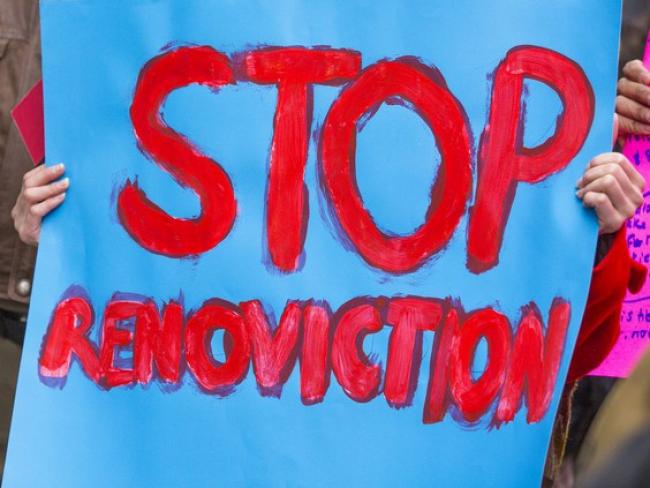Articles Menu

Mar 02, 2021
The B.C. government has proposed a law that would extend the rent freeze to the end of 2021, cap future rent increases to inflation and prevent illegal renovictions.
The NDP government announced in November that the COVID-related rent freeze would run until July but that would be extended to the end of 2021 if the bill, introduced in the legislature Monday by the minister responsible for housing, David Eby, passes.
B.C. proposes rent freeze until end of 2021, measures to stop renovictions
The new bill would also mean that starting in 2022, rent can only be increased at the rate of inflation.
In an effort to prevent renovictions, the law would require landlords to apply to the Residential Tenancy Branch before they can issue an eviction notice relating to renovations. The landlord must prove to the branch that the renovations are so substantial that they can only be done if the rental unit is vacant.
“The changes mean no more tenants will face eviction notices for phoney renovations that were never going to happen,” said Spencer Chandra Herbert, the NDP MLA for Vancouver West-End who chaired B.C.’s rental housing task force, which in 2018 recommended several overhauls to better protect renters.
Herbert noted that most renovations can take place without the renter having to vacate the unit.

Vancouver Mayor Kennedy Stewart said in a statement the proposed measures to curb renovictions is a “welcome relief to renters all across the city who are struggling in the face of both a housing crisis and the ongoing pandemic. Stopping illegal renovictions not only helps keep people in their homes, but it will help protect our supply of affordable housing in the city.”
Andrew Sakamoto, executive director of the Tenant Resource and Advisory Centre, said requiring landlords to apply to the Residential Tenancy Branch before issuing an eviction notice for renovations will reduce the number of tenants who are unlawfully displaced.
“It is common for landlords to illegally renovict tenants without the necessary permits required by law or for minor and cosmetic improvements that do not require vacant possession of the rental unit,” Sakamoto said in a statement. “Rather than forcing tenants to dispute these types of meritless eviction notices, we are pleased that landlords will now have to go through an application process before issuing such notices in the first place.”
David Hutniak, CEO of LandlordBC, which represents about 3,300 landlords with about 125,000 units across the province, said the proposed process for landlords would allow legitimate renovations to be adjudicated by the branch up front, “mitigating what has at times been an unnecessarily confrontational process.”
The new law would also expand the scope of penalties that can be levied by the Residential Tenancy Branch’s compliance and enforcement unit, including fines for giving false or misleading information in a dispute resolution proceeding or investigation. It would also clarify language in the Manufactured Home Park Tenancy Act to address conflicts between mobile home park rules and tenancy agreements.
The proposed reforms, Herbert said, will help B.C. renters who have long been struggling with “massive rent increases, unfair rules, no enforcement and a real lack of fairness.”
If passed, the Tenancy Statutes Amendment Act or Bill 7, would come into effect on July 1.
[Top photo: Nov. 9, 2018 file photo of a sign at a renoviction demonstration by the Vancouver Tenants Union. In an effort to prevent illegal renovictions in B.C., a proposed law would require landlords to apply to the Residential Tenancy Branch before they can issue an eviction notice relating to renovations. PHOTO BY FRANCIS GEORGIAN /PNG]